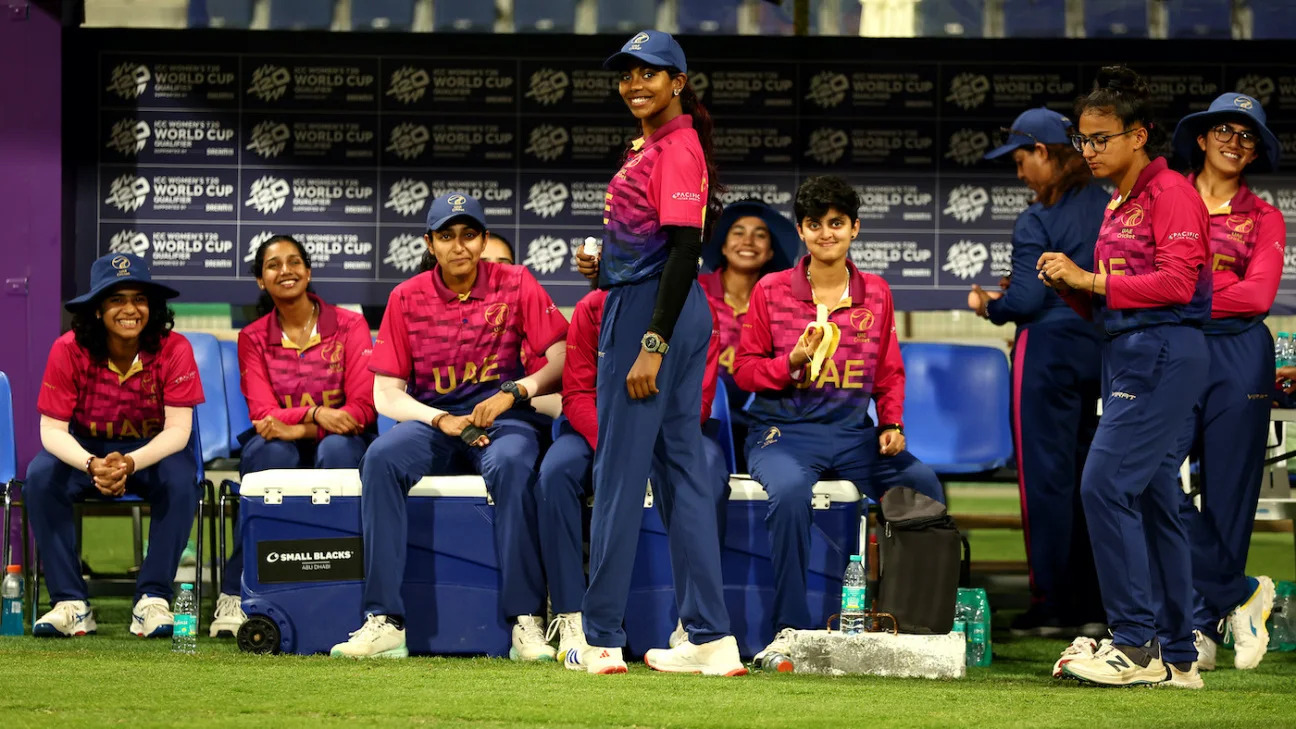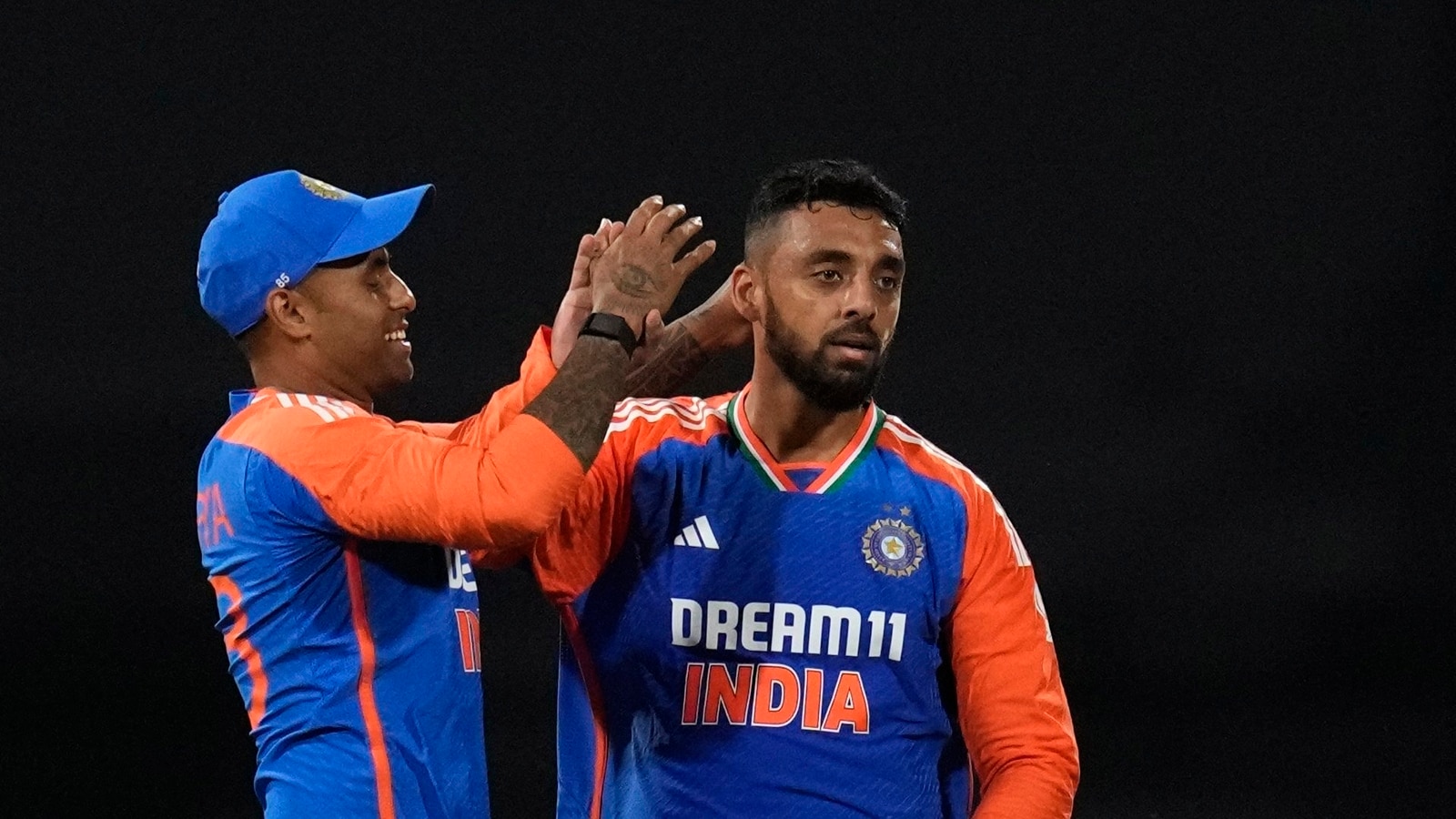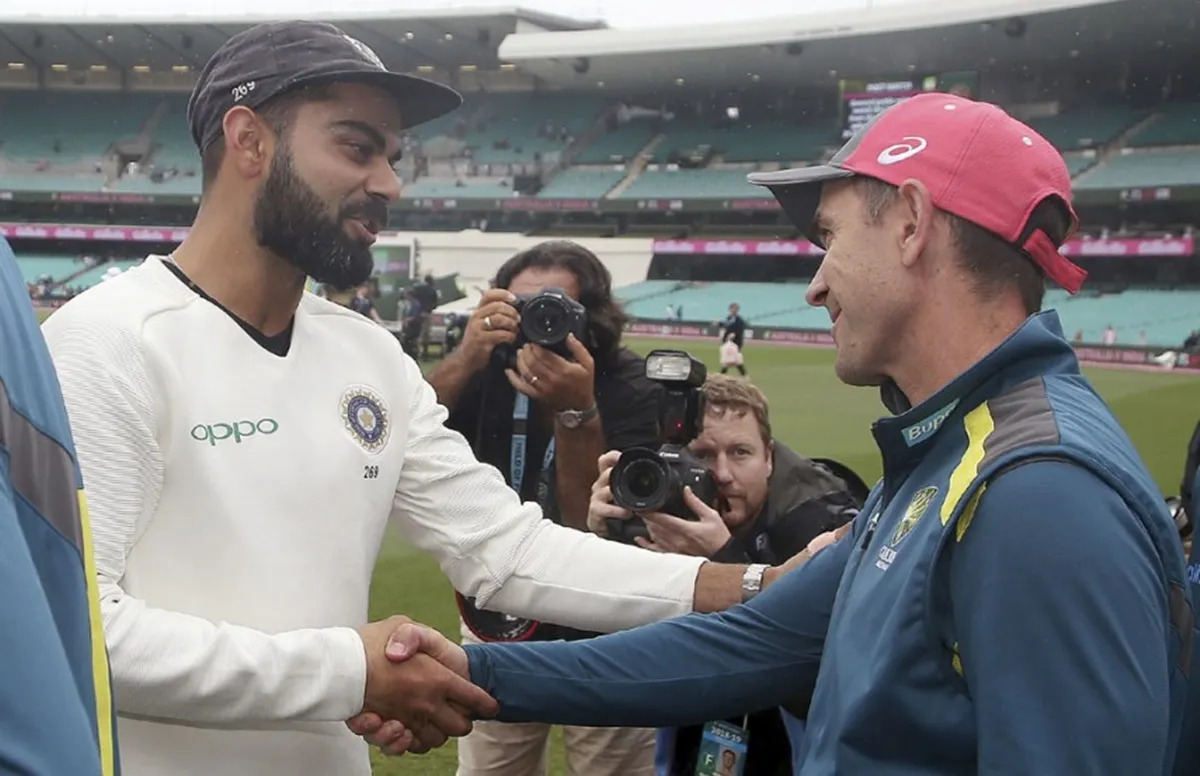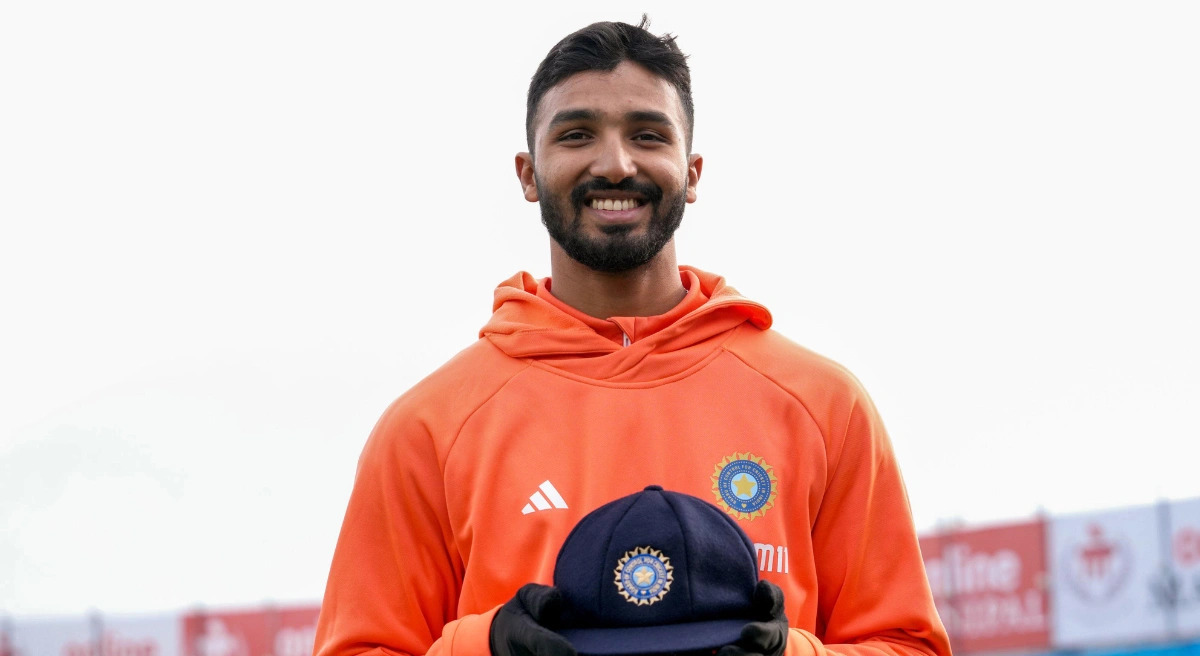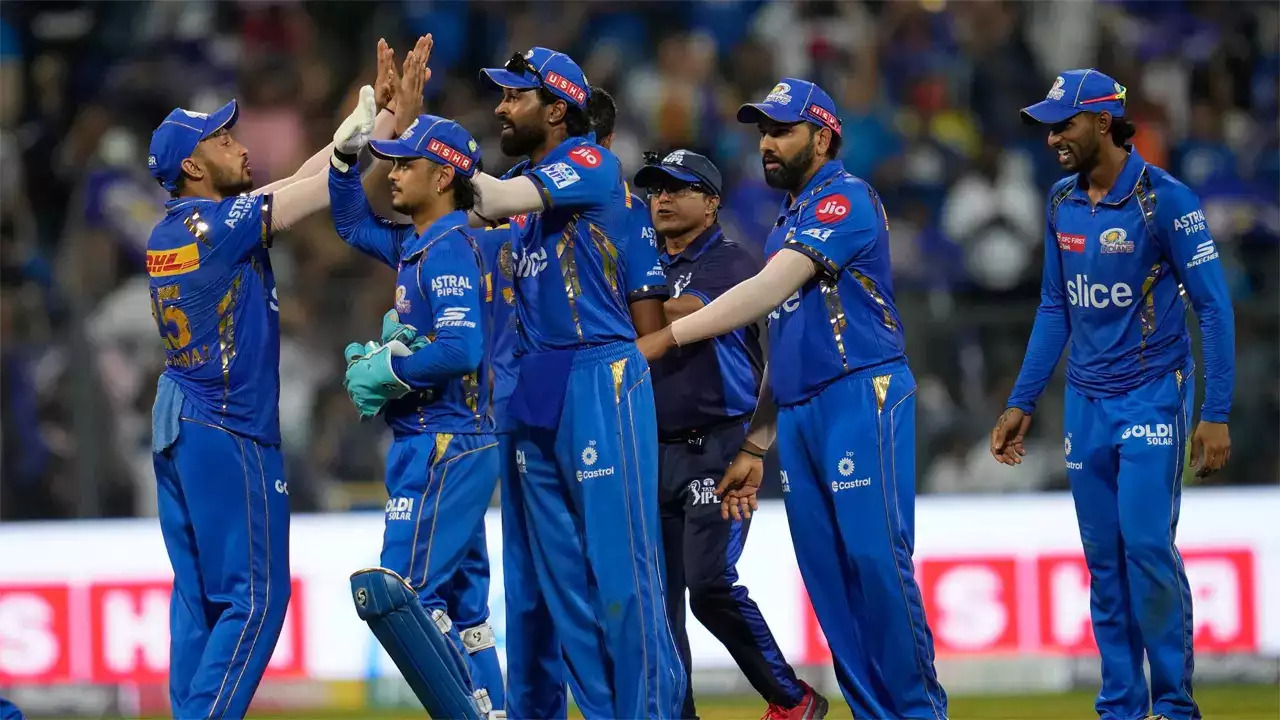Esha Oza, the captain of the UAE women’s squad at the moment, was one of them kids. Her family relocated from Mumbai to the Emirates in 1998 when she was eight months old, and she currently resides there. While on summer vacation in India, she played football at school and became interested in cricket after seeing her cousins play the well-liked gully variation of the game. “I used to go play with them and I realised I actually enjoy doing this,” she explained. “When I returned to Dubai [after the holidays] in 2013, that was when I thought maybe I should start learning the sport as well, go to an academy and play the sport.”
In terms of regions where women’s advancement in sport and society as a whole are considered noteworthy, the Middle East may not be among the top contenders. Maybe not when it comes to cricket in the United Arab Emirates.
Although their women’s team didn’t place first in the Associate rankings for the previous year or earn a spot in the T20 World Cup, they had a fantastic run through the Asia Qualifier and have a plenty of promise going forward.
Today, the majority of the players in their system are native-born, having learned the sport through a highly professionalised academy system. Parents of the younger generation, who recognise the value of physical activity for both sexes, also urge their children to participate in sports.
Growing up, it has become the norm. Ahmed Raza, the current women’s coach at ESPNcricinfo Powerplay, said that parents typically take their children to a variety of sporting events and then let them choose one over the other.
Oza was fifteen years old at the time, but she was already well-versed in team sports and fit enough to participate in competitive activities. She became a member of the Desert Cubs Academy, where she primarily played against boys but was a valuable off-spinner and opening batsman.
A year later, she was playing for “a team made up of schoolgirls” on the national squad for a Gulf Cricket Cup (GCC) competition. She attributed some of her success to football.
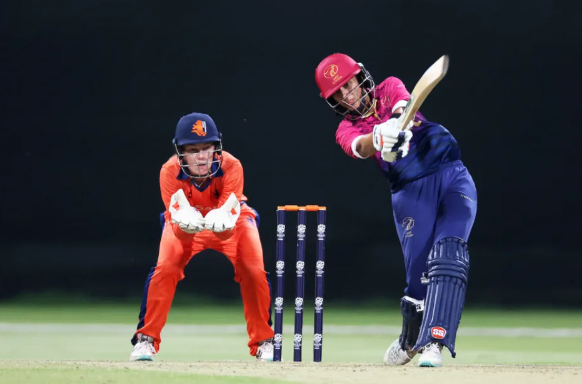
“Football is also a team sport, so just being around a team, being around that environment, that’s really important,” she stated. “Sports teach you a lot of things. It teaches you how to handle a variety of situations, including wins, losses, sharing, and interacting with various individuals. That’s something that all sports have in common. It’s also simple to switch between sports because you’re already engaged if you play another one.”
Oza was a member of the XI and, at the time, also a member of an ICC Development Squad that was playing in England when the UAE played their first official Twenty20 International in 2018. She had her first half-century in six months, against China, and her career was taking off.
By then, she was twenty years old and almost finished with her university education—the age at which Raza claims most young women give up on athletics. “The difficulty arises when they graduate from high school and enter the workforce, where they must find employment or get married. Keeping them in the system is the board’s or my challenge,” he remarked.
Oza was fortunate to have a plan and favourable circumstances working in her favour. She made the decision to stay in Mumbai for a long time in the summer of 2019 in an attempt to make the national Under-23 team.
The actual event was more difficult than anything she had ever encountered. “There were about 5,000 girls participating in the trials. After that, it was all about making it to the camp’s final 30 and top 100 rounds. Reaching there and completing these steps was the first hurdle, the speaker remarked.
She was able to secure a spot in the month-long indoor summer camp of the Mumbai Cricket Association as well as a spot in the Mumbai senior T20 team. She added, “It was a great challenge.” “Jemimah Rodrigues led us in a game while she was playing for Mumbai. I’ve also competed against a lot of the Indian players of today, and you can pick up a lot from by observing how their style of play differs from ours.”
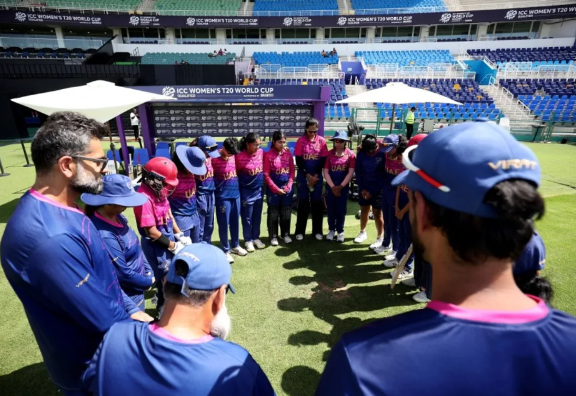
She continued to pursue her studies at the University of Wollongong in order to earn a bachelor’s degree in management and commerce. Everything might have gotten too much, but suddenly Covid-19 hit, and everything shifted online. “So even though I was in India, I was able to catch up with my classes,” Oza stated. “I didn’t really miss anything. All I was doing was attempting to strike a balance.”
She was able to maintain her talents, and within four months of returning to international cricket, she recorded the third-highest individual score by any female cricketer in the format, despite the UAE playing no matches between February 2019 and November 2021. She scored her first century, hitting 158 not out against Bahrain, and was taken aback by the magnitude of her feat. “I was a little perplexed because that was the first time I had ever scored a hundred and I had also exceeded the 150 threshold. When you turn 150, how do you celebrate?”
How then did she? “I just raised my bat. I had run out of options.”
Since then, she has participated in all but four of the UAE’s matches, added two more century to her record, and is currently the second-fastest woman to reach 1000 T20I runs. She also captains the national team.
As captain, she has improved the team’s T20I average to 40.84 (from an overall average of 30.95). She also led the team to victory in the Asia Qualifiers, advancing them to the T20 World Cup Qualifier and giving them a chance to qualify for the tournament—until they were defeated by Sri Lanka. Oza was all the more eager to attend the event after his setback.
“I really badly wanted to make it to this year’s World Cup,” she stated. All teams, however, desire it. Every qualifying squad is aiming for the same thing. The World Cup is the greatest cricket competition in the world, and my goal is to lead the team to one—ideally the 2026 World Cup.”
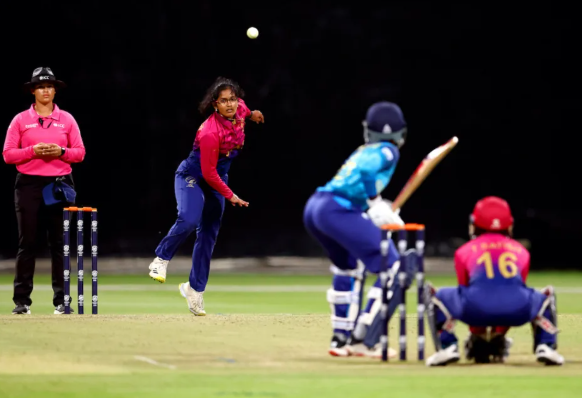
UAE thinks they can compete in the 2026 event, which is a significantly modified version of the competition with 12 teams instead of 10. However, they have other objectives along the road. “Becoming one of the best Associate countries in the world is a goal that we are working towards,” Raza stated. obtaining ODI status, too. We are keeping an eye on those items.
The five Associates—the Netherlands, Scotland, Papua New Guinea, Thailand, and the United States—were granted ODI recognition in 2022, joining the current Full Member women’s sides who are all recognised as ODI teams. Apart from an increasing trajectory in outcomes, there doesn’t seem to be any predetermined criteria for giving women’s teams ODI status, and UAE checks all the boxes in that regard.
They’ve won eight of their eleven games this year, which is the most of any year they’ve participated in more than five, and they can build on that record in the Asia Cup. Along with the formidable nations of India and Pakistan, they are grouped with Nepal, which is five spots lower on the list. “When you play the Asian giants like India, you know there are a lot of eyeballs on you,” Raza stated.
Oza saw that firsthand thanks to her heroic 66 against Sri Lanka in the T20 World Cup qualifier, where she finished second in the tournament’s run-scoring standings behind Chamari Athapaththu. Raza stated, “It was talked about around the globe,” and while Oza is undoubtedly the team’s standout player, he thinks there may be more. “A bowler can have a good spell or any one of our players can have a knock like that.” It’s T20 cricket as well. You never know. If you defeat one of those elite teams, everyone will be talking about you.”
Another such is Vaishnave Mahesh, a legspinner in the UAE who was born in Chennai. She grabbed 15 wickets in the Asia Qualifier and, at 16 years and 262 days, overtook Rashid Khan, who was 19 at the time, to become the youngest player to reach 50 T20I wickets. Mahesh made her debut for the UAE when she was just 12 years old. Although the ICC set a minimum age of 15 in 2020, meaning that players less that age cannot play for the UAE, the country’s next generation will likely come from the mid-teens. “Our development programme has hundreds of girls who are under the age of 15 who will be coming through our system,” Raza stated.
They are watching the women’s team from the UAE play.
The best individual to act as a role model for them is Oza, therefore his next responsibility is to figure out how to retain them in the system. “We’re seeing a lot more girls taking part in cricket in the UAE as well,” she stated. “We get ten-year-olds who come in and say they’ve seen us perform. It implies that even they are paying attention to what is going on.
“Now-growing girls can have aspirations, such as wanting to play for the UAE national team in the future. They can embark on their quest in this manner. “I want to be a player for the UAE women’s team in a few years,” they can declare to academies.






 Win Projections to be updated soon
Win Projections to be updated soon



















